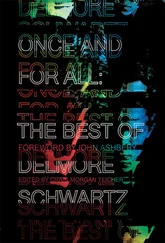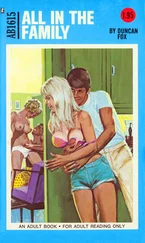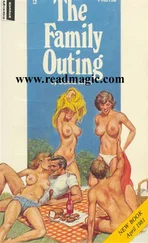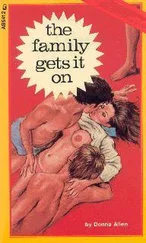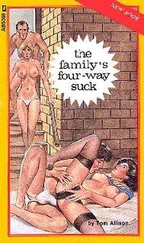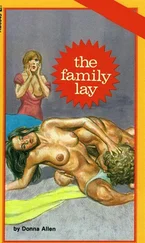I believe Lesley Griffiths; I don’t care what Ops thinks. I doubt he’s ever worked in TV drama. I’ve probably read more documents than he has about the psychology of the compulsive liar. Mythomania, it’s called. I remember a document with that heading sitting on my desk for weeks, and me never having time to read it. Eventually I spilled coffee over it deliberately, hoping no one would provide me with another copy.
Someone did. I read it eventually. One line stuck in my mind: “The stories told tend to present the liar favorably, as the hero or the victim.” I thought that was odd: Why would anyone want to be a victim? How did that qualify as favorable presentation?
If I ever meet Anne Donbavand, I might ask her.
Before I leave Sarah’s gallery, I can’t resist trying one more question. I throw it over my shoulder as I’m leaving, hand on the door, to make it sound trivial. If she reacts badly, I can always make a run for it. “I don’t suppose you’ve heard of a Perrine Ingrey, have you?”
“No, I haven’t. Though what an alluring name! Is she an artist?”
Again, not a flicker of recognition.
“I’m not sure she’s anyone,” I say, wanting to make my parting remark as honest as possible. “I think I’ve been given the wrong information.”
I arrive out of breath and two minutes late for my four o’clock meeting with Stephen Donbavand. Getting from Totnes to Exeter was the easy part. Finding the right office once I arrived at Exeter University proved almost impossible.
I knock on the door. Two minutes only counts as late if you’re a punctuality freak like me. It’s another hangover from my London life, where it really mattered. Every meeting that needed two hours was squashed into one because you invariably had a stack of twelve to get through afterward, followed by an evening spent doing all your housework with one hand while arranging and rearranging the next day’s meetings on your iPhone with the other.
I’m hoping Exeter University has a more leisurely ethos. I suppose it bodes well that no one I’ve encountered so far seems to know where any of the buildings or departments are. I found Stephen Donbavand’s room by accident in the end.
Who am I supposed to be again? Too late: the door is opening. Fuck. This isn’t a normal kind of forgetting; it’s a panic-induced blanking out.
“Julia Vowles?”
Oh thank you, thank you.
“Yes. Dr. Donbavand?”
He extends a hand. I’m about to shake it when he turns abruptly and walks over to a table in the corner of the room that has a kettle, mugs and packets of Nescafé on it. “Pleasure to meet you,” he says.
I put away my unwanted hand and try not to feel embarrassed. Is this a new thing: the air handshake, like the “mwah-mwah” no-contact kissing that TV people do?
I’m surprised by my racing heart and dry throat. One day I might tell someone I did this—Alex, for example—and I’ll make it a funny story: how I snuck in and fooled Stephen Donbavand, pretending to be someone wanting to study micro-blah-blah economics. I won’t mention that I was so scared, I could hardly breathe.
What if Stephen Donbavand sees through my act? What if he attacks me?
“Do come in and make yourself comfortable. Coffee? I can offer you caf or decaf, but no tea, I’m afraid.”
“I’ll have decaf. Thanks.” It’s not a breaking of my rule. Decaf instant Nescafé has more in common with juice than it does with real coffee.
“Good idea! I’ll join you.” He sounds delighted that we’re going to have the same drink.
I know this man. Not him specifically, but his type. He’s one of those people so steeped in niceness, he’s unable to recognize its opposite. Of course Anne Donbavand would marry someone like him. He’d be the perfect enabler.
His office is tidy and impersonal. There are two shelves of economics books with titles like A Note on the Existence of Nash Equilibrium in Games with Discontinuous Payoffs , one small blue and white rug that looks pitiful at the center of such a large room. The mug in which my noncoffee arrives has a slogan on it: “150% of statistics are wrong!” No photos anywhere in the room, of his wife and children or of anything else.
It’s as if Stephen Donbavand has dutifully put some things in his office to make it his own, but has no idea how to make it truly personal or homely. Either that’s a typically male approach to occupying space or else I’m a sexist.
Already, I know more about George’s father than I did when I knocked on his door. I know he didn’t take one look at me and think, “That’s not Julia Vowles, it’s Justine Merrison.” Or “That’s my sister-in-law, Allisande Ingrey.”
How much has Anne confided in him? People keep things from their spouses all the time. I set off to Totnes this morning without mentioning to Alex that I was going on to Exeter afterward to pretend to be Julia Vowles the economics student. It’s possible that Anne Donbavand hasn’t mentioned her harassment of me to her husband.
He must know the Ingrey story, though, if George does. But, no, that doesn’t work. If Stephen and George—and Fleur too, presumably—think that Anne is Lisette Ingrey, daughter of Bascom and Sorrel, sister of Allisande and Perrine, who do they all think they’re visiting each Christmas when they spend a tense afternoon with Martin and Denise Offord and Sarah Parsons?
When he sits down opposite me holding his own mug, which he’s rather bizarrely wrapped in a blue tea towel, I look at Stephen Donbavand’s smiling face and think, You could tell this man anything and get away with it.
“So. Why Exeter University?” he asks me.
“Because you’re here,” I say. “As I said in my email, I’ve read some of your work and found it very interesting.”
“Oh.” He looks surprised. “Well . . . thank you!”
I wonder if there’s a slogan on his mug, concealed by the tea towel: “150% of prospective PhD students are secretly here to ask questions about your mad wife!”
“And also I know your sister-in-law, Sarah Parsons,” I add on a whim. I’m scared anyway; might as well escalate to very scared.
Stephen Donbavand looks surprised, but pleasantly so. “I see! How do you know Sarah?”
“From walking past her gallery so often—one day I plucked up the courage to go in. We got chatting—you know how friendly and chatty she is—and we’ve been good friends ever since. She’s an amazing artist, isn’t she?”
“Yes. Very talented indeed.”
“You must have her paintings all over your walls, have you? Oh. I’m so sorry.” I cover my mouth with my hand. “What a stupid thing to say. I know Anne doesn’t like to have much involvement with her family—Sarah told me. So . . . there’s no reason why you’d have lots of her work in your house.”
“Think nothing of it.” Stephen smiles. Still no suspicion on his face; still the benign duck expression. “In fact, what I know about art could be written on the back of a postage stamp, so rather than have a conversation that reveals my ignorance . . . shall we talk about your research plans instead?”
Interesting. I make a reprehensibly intrusive comment about his wife, and his response is to try to make me feel better.
“Yes. Though . . . I’m just thinking, does it matter that I’m a friend of Sarah’s, from the point of view of you maybe being my supervisor?”
“No, I don’t think it’s any sort of conflict of interests,” Stephen Donbavand says.
“Good. Neither do I.”
We smile at one another.
“So tell me about your work, then.”
Shit. What can I say? Sitting in a room with someone who believes I might be planning to do some work is making me sweaty and nauseous.
Читать дальше

